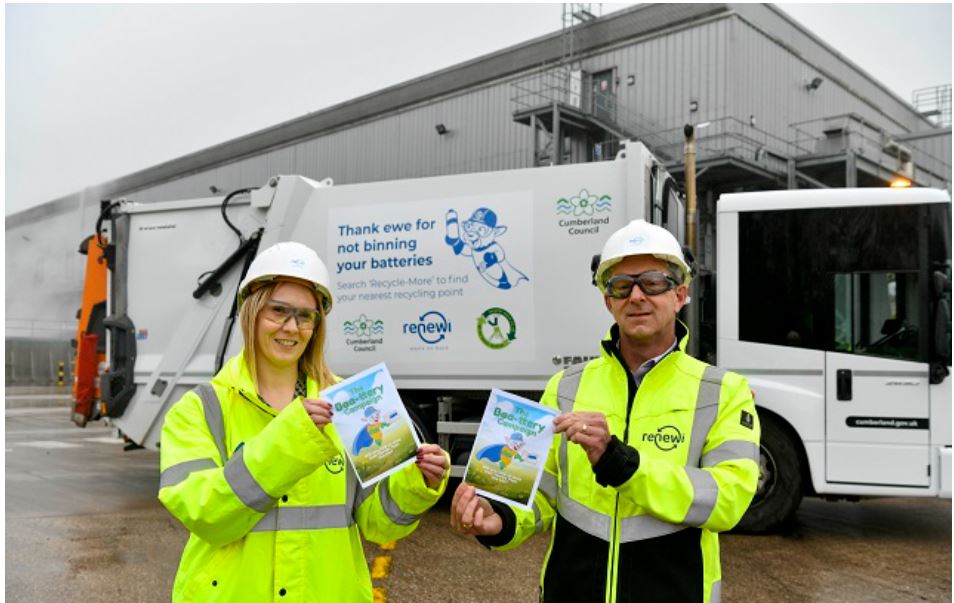The UK is on track to meet its second mandatory EU battery recycling target, according to waste portable battery collection data for 2013 Q1 published by the Environment Agency this week.
But, in the wake of the release of the data, compliance schemes have intensified their calls for the government to address concerns over the disproportionate amount of lead acid batteries collected compared to other chemistries.

Under the Batteries Directive, EU Member States are required in 2013 to collect waste batteries proportionate to 30% of the average number of new batteries placed onto the market over the three preceding years. This target will rise again by five percentage points per year until it reaches 45% in 2015.
The latest data shows that in the first quarter of 2013, a total of 3,549 tonnes of waste portable batteries were collected for recycling by battery compliance schemes. As an average of 39,784 tonnes of batteries were placed on the market per year over the three preceding years by obligated companies, this means that to date in 2013 the UK has achieved a recycling rate of around 35%.
Meanwhile, the data shows that the overall tonnage of batteries collected appears to be rising, with more batteries collected in the first quarter of 2013 compared to any quarter during the previous year.
Obligation
Commenting on the data, Robbie Staniforth, key account specialist at battery compliance scheme Budget Pack, said: We are pleased to see that in Q1 the UK has collected nearly 35% of the estimated obligation for 2013. However, it is only early in the year and we expect the obligation to increase as the year progresses.
We are pleased to see that in Q1 the UK has collected nearly 35% of the estimated obligation for 2013. However, it is only early in the year and we expect the obligation to increase as the year progresses.
Robbie Staniforth, Budget Pack
We are interested to see that lead acid batteries continue as the greatest chemistry recycled. We are working assiduously at Budget Pack to develop our collection network to ensure that the amount of portable batteries recycled continues to increase in line with the targets set.
However, the data does show that the number of portable lead acid batteries being collected is still proportionately high compared to the amount being placed onto the market. In total during the first quarter of 2013 around 3019 tonnes of lead acid batteries were collected for recycling, compared to 529 of other chemistries.

The government has pledged to address the situation, which battery recyclers say is due to a difference in categorisation over which lead acid batteries should be classified as portable and which as industrial.
Under the terms of the European Unions Batteries Directive, batteries are categorised into three groups: automotive, industrial and portable.
Lead acid
Portable batteries are the only category to which a recycling target has been attached, and in the UK are classified as any battery which is sealed, can be hand-carried without difficulty and is neither for automotive nor industrial purposes. Industrial batteries are defined as such if they have been designed exclusively for professional use.
But, battery recyclers claim that as they are often unaware of the original use of some lead acid batteries, it is impossible to determine if they fall into the industrial or portable classification, and are therefore reported as portable, inflating the number of lead acid batteries that are being counted toward recycling targets.
Despite originally stating that it would seek to have a solution to the problem in place by early 2013 (see letsrecycle.com story), the Department for Business, Innovation and Skills (BIS) has said it is still treating the issue as a priority, but only expects to have a solution in place by as early as the autumn.
Mike Green, chief executive of G&P Batteries said: There has been work going on and we know they are looking at resolving the problem. We think there is a relatively straight forward solution and that is what they are looking at.
Related Links
We are cooperating with the Agency and pushing them as much as possible because it is taking a very long time. Other European Member States are aware of this issue and you cant help but feel that it is embarrassing for the UK government.
Data published by the Agency in March showed that the UK had met its first mandatory target in 2012 to collect 25% of the batteries placed onto the market, after achieving a collection rate of 27.70% over the course of the year (see letsrecycle.com story).









Subscribe for free